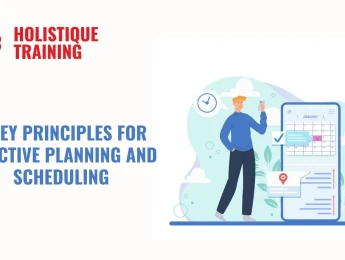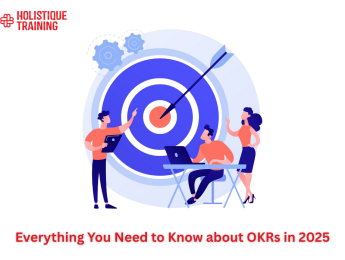- Table of Contents
- Introduction
- Understanding Coaching Models
- What Is the Impact Coaching Model?
- Benefits of the Impact Coaching Model
- Tangible Results:
- Holistic Development:
- Self-Awareness and Empowerment:
- Alignment with Organisational Goals:
- Enhanced Performance and Productivity:
- Resilience and Adaptability:
- Improved Relationships and Communication:
- Long-Term Sustainability:
- Principles of the Impact Coaching Model
- Holistic Approach
- Client-Centred:
- Outcome-Oriented:
- Continuous Learning:
- Empathy and Respect:
- Strengths-Based:
- Accountability and Action:
- Ethical Practice:
- The 4 Stages of the Impact Coaching Model
- Discovery:
- Visioning:
- Strategy Development:
- Implementation and Reflection:
- Applying the Impact Coaching Model in Practice: Tips for Coaches and Practitioners
- Cultivate Empathy:
- Foster Accountability:
- Embrace Flexibility:
- Promote Reflection:
- Invest in Continuous Learning:
- Examples of the Impact Coaching Model
- Career Transition:
- Leadership Development:
- Organisational Change:
- Real-life Story
- In a Nutshell
Introduction
Picture this: You're standing at the crossroads of a significant juncture in your life or career, feeling the weight of uncertainty and possibility hanging in the air. It's a moment ripe with potential, yet navigating it seems like traversing uncharted territory. This is where coaching emerges as a guiding light—a transformative odyssey that propels individuals towards self-discovery, growth, and profound change. However, amidst the myriad of coaching methodologies that populate the landscape, one model shines with unparalleled effectiveness: the Impact Coaching Model.
In a world where personal and professional development is paramount, the Impact Coaching Model is a beacon of innovation and efficacy. Unlike conventional approaches that may fail to deliver tangible results, this model transcends boundaries, offering a holistic framework designed to catalyse transformative shifts in individuals and organisations. Through its strategic blend of empowerment, accountability, and outcome orientation, the Impact Coaching Model equips individuals with the tools and insights needed to realise their full potential, navigate life's complexities, and work with confidence and clarity.
Understanding Coaching Models
Understanding coaching models is essential for coaches and clients alike, as they provide a structured framework for facilitating growth and achieving desired outcomes. Various models have emerged in the vast landscape of coaching, each offering unique perspectives and approaches to the coaching process. These models serve as roadmaps, guiding coaches in delivering effective interventions and assisting clients in navigating their personal and professional development journeys.
Coaching models typically encompass a set of principles, methodologies, and techniques aimed at facilitating change and fostering growth. They provide a systematic approach to goal setting, action planning, and reflection, ensuring a comprehensive and structured coaching experience. By adhering to a specific model, coaches can tailor their interventions to meet their clients' unique needs and preferences while also ensuring consistency and effectiveness in their coaching practice.
Moreover, understanding coaching models empowers clients to make informed decisions about their coaching journey. By familiarising themselves with different models and their underlying principles, clients can assess which approach resonates most with their goals, values, and aspirations. This awareness enables clients to participate in the coaching process actively, collaborate with their coach in setting meaningful objectives, and track their progress towards desired outcomes. In essence, understanding coaching models enhances the efficacy and impact of the coaching experience, enabling both coaches and clients to navigate the journey of personal and professional development with clarity and purpose.
What Is the Impact Coaching Model?
What sets the Impact Coaching Model apart from other coaching methodologies is its profound focus on catalysing meaningful and sustainable change. Rooted in evidence-based practices and developed by seasoned professionals in the field, this model transcends the confines of traditional coaching paradigms.
At its core, the Impact Coaching Model operates on the premise that coaching is not merely about imparting knowledge or prescribing solutions; rather, it is a transformative journey of self-discovery, growth, and empowerment. Unlike approaches prioritising quick fixes or superficial interventions, the Impact Coaching Model takes a holistic view, acknowledging the interconnectedness of various aspects of an individual's life.
The belief that sustainable change begins from within is central to the Impact Coaching Model. By fostering deep self-awareness and introspection, coaches guide clients on a journey of exploration, helping them uncover their inherent strengths, values, and aspirations. This process of self-discovery serves as the foundation upon which coaching interventions are built, ensuring alignment with the client's authentic self and intrinsic motivations.
Moreover, the Impact Coaching Model is characterised by its emphasis on outcomes. Rather than focusing solely on process-oriented activities, this model prioritises tangible results that align with the client's goals and aspirations. Whether it's advancing in one's career, cultivating healthy relationships, or pursuing personal growth, the Impact Coaching Model empowers clients to define their desired outcomes and chart a course toward achieving them.
Another hallmark of the Impact Coaching Model is its client-centred approach. Recognising that each individual is unique and possesses inherent wisdom, coaches act as facilitators, guiding clients on their journey of self-discovery and growth. By creating a safe and supportive environment conducive to open dialogue and exploration, coaches empower clients to tap into their own resources, insights, and capabilities.
Furthermore, the Impact Coaching Model is characterised by its adaptability and flexibility. Recognizing that change is an ongoing process, coaches tailor their approach to meet their clients' evolving needs and preferences. Whether adapting coaching techniques to suit different learning styles or adjusting strategies in response to emerging challenges, coaches remain agile and responsive throughout the coaching journey.
In essence, the Impact Coaching Model represents a paradigm shift in the coaching field, offering a dynamic and results-oriented approach to personal and professional development. By embracing its principles and practices, coaches and practitioners can unlock their clients' full potential, empowering them to thrive in an ever-evolving world of change and opportunity.
Benefits of the Impact Coaching Model
The Importance of the Impact Coaching Model lies in its ability to deliver tangible and lasting results, making it a pivotal approach in the field of coaching. Let's delve deeper into the benefits of the Impact Coaching Model:
Tangible Results:
The Impact Coaching Model prioritises outcomes, focusing on achieving tangible results that align with the client's goals and aspirations. By providing a structured framework for goal setting and action planning, this model ensures that clients make measurable progress towards their objectives.
Holistic Development:
Unlike traditional coaching approaches focusing solely on skill enhancement or behaviour modification, the Impact Coaching Model takes a holistic approach to development. This model fosters comprehensive growth and fulfilment by addressing personal and professional dimensions.
Self-Awareness and Empowerment:
Central to the Impact Coaching Model is the promotion of self-awareness and empowerment. Through powerful questioning and active listening, coaches guide clients on a journey of self-discovery, helping them uncover their strengths, values, and aspirations. Clients become empowered to make informed decisions and take ownership of their growth journey by tapping into their inherent wisdom and resources.
Alignment with Organisational Goals:
For organisations seeking to drive change and achieve strategic objectives, the Impact Coaching Model offers a powerful tool for aligning individual and organisational goals. By tailoring coaching interventions to support organisational priorities, coaches help clients become more engaged, productive, and aligned with the organisation's mission and values.
Enhanced Performance and Productivity:
The Impact Coaching Model enhances individual performance and productivity by fostering clarity, focus, and accountability. Whether overcoming obstacles, leveraging strengths, or optimising time management, clients emerge from the coaching process with heightened effectiveness and efficiency.
Resilience and Adaptability:
Resilience and adaptability are essential for success in today's fast-paced and unpredictable world. The Impact Coaching Model equips clients with the tools and strategies to navigate change, overcome challenges, and thrive in dynamic environments.
Improved Relationships and Communication:
Effective communication and interpersonal skills are critical for success in both personal and professional contexts. Through the Impact Coaching Model, clients gain insights into their communication style, interpersonal dynamics, and conflict resolution strategies, leading to stronger relationships and more meaningful connections.
Long-Term Sustainability:
Unlike short-term fixes or quick solutions, the Impact Coaching Model promotes long-term sustainability by addressing root causes and facilitating lasting change. By instilling habits of reflection, learning, and growth, clients continue to evolve and adapt even after the coaching relationship concludes.
In summary, the Impact Coaching Model offers a transformative approach to personal and professional development, empowering individuals and organisations to realise their full potential and achieve meaningful change. Through its focus on outcomes, holistic development, and empowerment, this model equips clients with the tools and strategies to thrive in an ever-evolving world.
Principles of the Impact Coaching Model
The Principles of the Impact Coaching Model serve as the guiding framework for its effectiveness in driving transformative change and fostering sustainable growth. Let's delve deeper into each principle:
Holistic Approach
The Impact Coaching Model adopts a holistic approach to development, recognizing that individuals are multifaceted beings with interconnected personal and professional dimensions. This model ensures comprehensive growth and fulfilment by addressing various aspects of the client's life, including career, relationships, health, and well-being.
Client-Centred:
Central to the Impact Coaching Model is the principle of client-centeredness. Coaches recognize that each client is unique and possesses inherent wisdom, expertise, and values. By honouring the client's autonomy and self-agency, coaches create a safe and supportive space for self-discovery, empowerment, and growth.
Outcome-Oriented:
Grounded in results-driven practices, the Impact Coaching Model prioritises tangible outcomes that align with the client's goals and aspirations. Rather than focusing solely on process-oriented activities, coaches guide clients in defining clear objectives, developing actionable plans, and measuring progress towards desired outcomes.
Continuous Learning:
The Impact Coaching Model promotes a culture of continuous learning and growth, both for clients and coaches alike. Recognising that change is an ongoing process, coaches encourage clients to embrace a mindset of curiosity, exploration, and self-improvement. Through regular reflection, feedback, and adaptation, clients cultivate resilience, agility, and adaptability in the face of challenges.
Empathy and Respect:
Central to effective coaching is the cultivation of empathy and respect. Coaches approach each client with compassion, understanding, and non-judgment, fostering a sense of trust and rapport. By actively listening, validating feelings, and acknowledging perspectives, coaches create a supportive environment conducive to open dialogue and exploration.
Strengths-Based:
The Impact Coaching Model adopts a strengths-based approach, focusing on leveraging and maximising the client's inherent strengths, talents, and capabilities. Rather than dwelling on weaknesses or limitations, coaches help clients identify and harness their unique assets, empowering them to achieve their full potential and thrive in their endeavours.
Accountability and Action:
Accountability and action are integral components of the Impact Coaching Model. Coaches hold clients accountable for their commitments, actions, and progress towards their goals. By providing structure, encouragement, and support, coaches help clients overcome procrastination, inertia, and self-doubt, empowering them to take decisive steps towards their desired outcomes.
Ethical Practice:
Ethical integrity is paramount in the Impact Coaching Model. Coaches adhere to the highest standards of professionalism, integrity, and confidentiality, ensuring the well-being and privacy of their clients. By upholding ethical guidelines and boundaries, coaches create a safe and trustful coaching relationship built on mutual respect and integrity.
In summary, the Principles of the Impact Coaching Model provide a solid foundation for guiding coaches and practitioners in facilitating transformative change and growth. By embracing these principles, coaches empower clients to realise their full potential, achieve meaningful outcomes, and thrive in all aspects of their lives.
The 4 Stages of the Impact Coaching Model
The Impact Coaching Model unfolds in four distinct stages, each characterised by specific objectives and interventions:
Discovery:
- In the Discovery stage, coaches lay the groundwork for the coaching journey by engaging clients in self-exploration and goal-setting.
- Through powerful questioning, active listening, and assessment tools, coaches help clients clarify their strengths, values, aspirations, and challenges.
- This stage is characterised by deep introspection and reflection as clients uncover insights into their motivations, preferences, and areas for growth.
- By establishing a solid foundation of self-awareness and understanding, clients are better equipped to articulate their goals and envision their desired future.
Visioning:
- Building upon the insights gained in the Discovery stage, the Visioning stage focuses on articulating a compelling vision for the client's future.
- Coaches guide clients in vividly describing success painting a picture of their ideal life or career.
- Through visualisation exercises, goal-setting techniques, and scenario planning, clients clarify their aspirations, priorities, and core values.
- This stage ignites inspiration and motivation as clients gain a clear sense of purpose and direction, fueling their commitment to take action towards their goals.
Strategy Development:
- With a clear vision in place, the Strategy Development stage involves co-creating actionable plans and strategies to bridge the gap between the client's current reality and desired outcomes.
- Coaches leverage a diverse toolkit of coaching techniques, such as SMART goal setting, SWOT analysis, and action planning, to help clients develop practical and achievable strategies.
- Coaches help clients identify potential obstacles through collaborative brainstorming and problem-solving and design creative solutions to overcome them.
- This stage empowers clients with a roadmap for success, equipping them with the skills, resources, and confidence to navigate challenges and seize opportunities.
Implementation and Reflection:
- In the Implementation and Reflection stage, clients implement their strategies, taking deliberate steps towards their goals.
- Coaches provide ongoing support, encouragement, and accountability, helping clients stay focused and motivated amidst setbacks and obstacles.
- Regular check-ins and progress reviews enable clients to track their achievements, celebrate successes, and adjust strategies as needed.
- This stage emphasises the importance of continuous learning and adaptation as clients reflect on their experiences, gain insights from their successes and failures, and refine their approach moving forward.
Stage | Description | Key Activities |
Discovery | Self-exploration and goal setting | Observing teaching practices, self-monitoring |
Visioning | Articulating a compelling vision | Facilitating meetings about target learners |
Strategy Development | Developing actionable plans | Sharing and trialing effective teaching strategies |
Implementation and Reflection | Putting plans into action | Researching strategies, reflecting on progress |
Accountability | Holding clients accountable for goals | Regular check-ins, progress reviews |
Table: Impact Coaching Model in Practice
In short, the 4 Stages of the Impact Coaching Model offer a structured framework for guiding clients through a transformative journey of self-discovery, goal setting, action planning, and reflection. By embracing each stage with intentionality and commitment, clients are empowered to realise their full potential and achieve meaningful change in their lives and careers.
Applying the Impact Coaching Model in Practice: Tips for Coaches and Practitioners
For coaches and practitioners looking to harness the power of the Impact Coaching Model, here are some practical application tips:
Cultivate Empathy:
- Cultivating empathy is essential for building trust and rapport with clients. Coaches should strive to understand their clients' perspectives, experiences, and emotions without judgment or bias. By demonstrating empathy through active listening, validation, and genuine concern for their client's well-being, coaches create a safe and supportive environment conducive to open dialogue and exploration.
Dr. Peter Sear, a psychologist, conducted extensive interviews with coaches from nine elite sports worldwide to compile valuable insights supported by recent research findings. His study indicates that empathetic leadership is pivotal in inspiring teams, fostering loyalty, and enhancing the prospects of achieving success.
Foster Accountability:
- Accountability is a cornerstone of effective coaching. Coaches should establish clear expectations and agreements with their clients regarding goals, action steps, and timelines. By holding clients accountable for their commitments and actions, coaches help maintain momentum and drive progress towards desired outcomes. Accountability can be fostered through regular check-ins, progress reviews, and constructive feedback. According to Primal Health Coach Institute, coaching offers continuous accountability through follow-up sessions, resulting in a remarkable 95% boost in the likelihood of achieving success.
Embrace Flexibility:
- Flexibility is key to meeting clients' evolving needs and preferences. Coaches should be adaptable and responsive, tailoring their approach and techniques to suit individual learning styles, personality traits, and cultural backgrounds. By embracing flexibility, coaches create personalised and customized coaching experiences that resonate with their clients and maximise impact.
Promote Reflection:
- Reflection is a powerful tool for fostering self-awareness and learning. Coaches should encourage clients to engage in regular reflection, both during coaching sessions and in their daily lives. Coaches facilitate deeper learning and growth by prompting clients to pause, review their experiences, and extract insights from their successes and challenges. Reflection can be facilitated through journaling, guided exercises, and open-ended questions.
Invest in Continuous Learning:
- Continuous learning is essential for staying abreast of the latest research, best practices, and trends in coaching. Coaches should invest in their professional development through workshops, seminars, certifications, and peer networking opportunities. By expanding their knowledge and skills, coaches enhance their effectiveness and relevance in supporting clients on their journey of growth and transformation.
By integrating these tips into their coaching practice, coaches and practitioners can maximise the impact of the Impact Coaching Model, empowering clients to realise their full potential and achieve meaningful change in their lives and careers.
Examples of the Impact Coaching Model
To illustrate the transformative potential of the Impact Coaching Model, let's explore a few real-life examples:
Career Transition:
- Consider Sarah, a mid-career professional feeling stagnant in her current role. Sarah clarified her strengths, values, and career aspirations through the Impact Coaching Model. With her coach's support, she successfully transitioned into a role that aligned with her passion and expertise, experiencing renewed fulfilment and professional growth.
Leadership Development:
- Take David, a newly appointed team leader struggling with confidence and communication skills. With the guidance of a coach using the Impact Coaching Model, David clarified his leadership style and developed actionable strategies for improvement. As a result, he earned the respect and trust of his team, driving enhanced collaboration and performance.
Organisational Change:
- Imagine a team of employees facing uncertainty amidst organisational restructuring. Through group coaching sessions grounded in the Impact Coaching Model, they navigated the challenges of change with resilience and adaptability. By fostering open communication, mutual support, and shared vision, the team emerged stronger, more cohesive, and better equipped to thrive amidst change.
These examples illustrate the transformative power of the Impact Coaching Model in various contexts, empowering individuals and teams to overcome obstacles, realise their potential, and achieve meaningful change.
Real-life Story
According to this article, Impact Coaching at Nayland College in Nelson has yielded remarkable results, transforming teaching practices and enhancing student outcomes. Through a systematic approach grounded in evidence-based practices, teachers engage in reflective practices guided by fellow educators trained as Impact Coaches. These coaches facilitate discussions around teaching strategies, ensuring that data informs decisions and focuses on improving learning outcomes. As Janice Gulbransen, Kahui Ako Lead Principal, emphasizes, Impact Coaching prioritizes evidence over opinion, fostering a culture of data-driven analysis and continuous improvement.
The impact of Impact Coaching is evident in the school's data indicators, with significant improvements observed across various metrics. Under the leadership of Principal Daniel Wilson, Nayland College has seen a notable increase in attendance rates, with a positive shift of over five per cent. Moreover, engagement data from the NZCER Me and My School survey reflects observable enhancements in classroom engagement, personal well-being, and overall pride in the school. Most notably, the school has witnessed a substantial rise in students achieving NCEA Level 2 or better, with rates increasing from 73 per cent to nearly 80 per cent. These achievements underscore the transformative power of Impact Coaching in driving positive change and fostering a culture of continuous learning and improvement within the school community.
Conclusion
In conclusion, the Impact Coaching Model represents a pivotal advancement in the field of coaching, introducing a paradigm shift that emphasizes holistic development, client-centric approaches, and tangible outcomes. By strongly emphasising understanding the interconnectedness of various facets of an individual's life, this model offers a comprehensive framework beyond mere skill enhancement or behaviour modification. Its effectiveness lies in its ability to empower individuals and organisations to navigate change and thrive in the face of uncertainty and adversity.
Moreover, our course, "Perfecting Your Management and Leadership Skills," provides an unparalleled opportunity for aspiring leaders and coaches to delve deeper into the intricacies of the Impact Coaching Model. Through expert guidance, practical insights, and interactive learning experiences, participants will gain invaluable knowledge and skills essential for success in today's dynamic and competitive landscape. From mastering the art of effective communication to cultivating resilience and adaptability, this course equips participants with the tools they need to excel as leaders and catalysts for positive change in their organizations and communities. Join us on this transformative journey and unlock your full potential as a leader, influencer, and visionary.


























